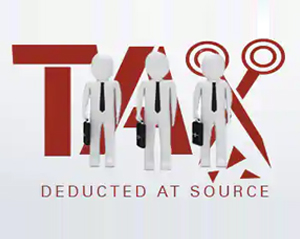Taxes affect your earnings, investments and savings. They can impact your financial planning, making you invest more to meet your goals. With the right tax* planning, you can save taxes and hence, get a greater amount for your financial goals.
What is Tax Planning?
Tax planning refers to planning your finances to minimise taxes by utilising deductions, exemptions, and other similar provisions from The Income Tax Act, 1961. Tax* planning is legal and does not include any unlawful measures to avoid tax*. It simply guides you to benefit from the provisions under the Income Tax Act, 1961 to save tax*.
The meaning of tax* planning can be better understood by getting to know its benefits and types.
List of Tax Saving Investment options in India
Below are some of the key investment options that can help you save tax in India:
Fixed Deposit (FD)
FDs offer a fixed interest rate on your investment. Tax-saving FDs usually have a lock-in period of five years. They offer you a tax deduction of up to ₹ 1.5 lakh per annum under Section 80C of The Income Tax Act, 1961. You can invest in a Fixed Deposit with a bank or a financial institution.
Mediclaim or Health Insurance
You can claim tax deductions on your health insurance premiums under Section 80D of The Income Tax Act, 1961. You can claim deductions as per below:
| Case I – Self below 60 Years and parents below 60 years | Case II – Self below 60 years and parents above 60 years | Case III – Self above 60 years | |
|---|---|---|---|
| Deduction* for self, spouse and dependent children | ₹ 25,000 | ₹ 25,000 | ₹ 50,000 |
| Deduction* for parents | ₹ 25,000 | ₹ 50,000 | ₹ 50,000 |
| Maximum deduction | ₹ 50,000 | ₹ 75,000 | ₹ 1,00,000 |
National Savings Certificate
National Saving Certificate (NSC) is a government-backed fixed-income investment scheme for individuals and HUFs. It offers guaranteed interest rate. The amount invested in an NSC qualifies for tax deduction for up to ₹ 1.5 lakh annually under Section 80C of The Income Tax Act, 1961.
Pension Plans
Pension plans help you stay financially independent even during your retirement. You can claim a tax deduction for the premiums paid towards your pension plan for up to ₹ 1.5 lakh annually under Section 80CCC of The Income Tax Act, 1961.
However, the deductions available under this section are clubbed with Section 80C and Section 80CCD(1). This means the total tax deductions claimed under 80C, 80CCC, and 80CCD(1) cannot exceed ₹ 1.5 lakh annually.
ULIPs
ULIPs are life insurance plans that help you grow your money and offer you a life cover. They offer the below tax* benefits as per The Income Tax Act, 1961:
- The premium paid under the policy is allowed as a deduction up to ₹ 1.5 lakh per annum subject to conditions under Section 80C of the Income Tax Act, 1961
- The proceeds received under the policy are exempt subject to conditions under Section 10(10D) of the Income Tax Act, 1961
Endowment Plans
Endowment plans offer you a life cover and long-term savings. They also offer the below tax benefits as per The Income Tax Act, 1961:
- The premium paid under the policy is allowed as a deduction up to ₹ 1.5 lakh per annum subject to conditions under Section 80C of the Income Tax Act, 1961
- The proceeds received under the policy are exempt subject to conditions under Section 10(10D) of the Income Tax Act, 1961
Term Insurance
Term insurance plans offer a large cover at affordable premiums. They also offer multiple tax benefits under The Income Tax Act, 1961:
- Premiums paid under the policy are allowed as deductions subject to conditions under Section 80C of The Income Tax Act, 1961
- You can get deductions of health insurance premium paid subject to conditions under Section 80D of The Income Tax Act, 1961
- Claim amounts received under the policy are exempt subject to conditions under Section 10(10D) of The Income Tax Act, 1961
Tax-saving mutual funds
Equity-Linked Saving Scheme (ELSS) is a type of mutual fund that offers the below tax benefits under Section 80C of The Income Tax Act, 1961:
- You can claim a deduction of up to ₹ 1.5 lakh annually by investing in an ELSS fund under Section 80C of the Income Tax Act 1961
- Capital gains of ₹ 1 lakh in a year made at withdrawal are not taxable subject to provisions under Section 112A of the Income Tax Act, 1961. Gains made beyond this limit will be taxable at 10% subject to provisions under Section 112A of the Income Tax Act, 1961
National Pension Scheme (NPS)
National Pension Scheme (NPS) is a government-backed initiative where individuals from public, private and unorganised sectors can save for their retirement. NPS offers the below tax benefits under The Income Tax Act, 1961:
Individuals who are employed and contributing to NPS would enjoy tax benefits on their own contributions as well as their employer’s contribution as under:
- Employee contribution:
Deduction up to 10% of basic salary plus dearness allowance u/s 80CCD(1) of the Income Tax Act, 1961.The overall limit is capped ₹ 1.50 lakhs under Section 80CCE of the Income Tax Act, 1961 - Voluntary contribution:
Deduction up to ₹50000 u/s 80CCD(1B) from taxable income for additional contribution to NPS. - Employer contribution:
Deduction up to 10% of basic salary plus dearness allowance from taxable income u/s 80CCD(2) of the Income Tax Act, 1961.
Public Provident Fund (PPF)
Public Provident Fund (PPF) is another government-backed investment scheme that offers the below tax benefits under The Income Tax Act:
- The contribution to PPF is eligible for tax deduction as per condition mentioned under section 80C of the Income Tax Act 1961.. Returns received from PPF are exempt under the Income Tax Act, 1961.
Do keep in mind that there are various other options available when it comes to planning your taxes. Section 80C to 80U of The Income Tax Act, 1961 offer a wide range of options that you can use to plan taxes well. Many financial components such as home loans, investment plans, money donated to charity, interest earned on your savings, and more, also offer tax benefits.
COMP/DOC/Jul/2023/197/3544
Benefits of tax* planning
Below are the key benefits of tax* planning:
Reduction in overall tax* payable amount
Tax* planning enables you to lower your tax* payable amount. It uses the provisions under The Income Tax Act, 1961 to reduce your taxes and allows you to pay lesser tax* to the government each year.
Financial stability
The lower your taxes, the more money you save. You can then use this money to be financially prepared to meet your goals. This leads to better financial stability in the long run.
Growth of economy
The concept of tax* planning is not limited to an individual alone. It also facilitates the growth of the economy.
The money you save can be used to increase consumption, thereby contributing to the economy. If you choose to invest the money to meet your financial goals, this money will then be invested in the market directly or indirectly, thereby contributing to the economy.
Helps with your investment
Tax* planning promotes investments and helps you prepare for various future goals. For example, Section 80C of the Income Tax Act, 1961, offers tax* benefits of up to ₹ 1.5 lakh per annum on investments like life insurance plans, unit-linked insurance plans, and more. If you invest in them, not only do you get to save tax*, but you also invest in a financially secure future.
Approach towards tax* planning
Tax* planning can be done in various ways. Below are a few key approaches that can be taken for tax planning:
Short-Term Tax Planning
You may start your tax* planning right before the financial year ends. This may be seen as urgent steps taken to lower the tax* liability for the concerned year. The primary purpose is just to save tax*.
Long-term Tax Planning
You may start your tax* planning at the beginning of the financial year. This will provide you with time for a detailed study and evaluation of different investments, savings instruments, tax* measures, and more. It enables you to invest in the right instruments to meet your financial goals and save tax* at the same time.
Permissive Tax Planning
You may consider tax* planning by investing basis eligible tax* deductions, exemptions and benefits offered under various sections of The Income Tax Act, 1961. You can benefit from the provisions under Sections 80C, 80D, 80E, and more.
Purposive Tax Planning
You may have a specific purpose in mind while planning your taxes*. You may accordingly select investments and assets that align with your objective. It includes tax* and portfolio diversification to ensure maximum tax* savings and enhanced returns according to your goals. While the primary focus here is to save tax*, it also involves strategies that can help you earn a good return in the long run.
People like you also read ...





